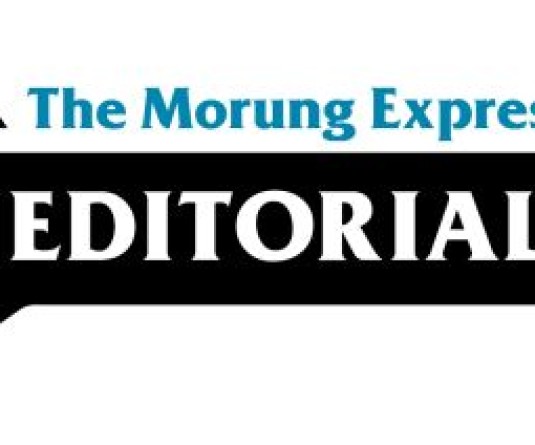
Dr Asangba Tzüdir
After days of uproar in the Indian media and condemnations across, the much debated ban on NDTV’s Hindi channel, has been put on hold by the Ministry of Information and broadcasting. This decision to put the ban on hold comes after the Supreme Court agreed to hear NDTV’s appeal against the ban. On the ‘sidelines’, an Assam based news channel ‘News Time Assam’ too, has been ordered by the I&B ministry to go off air on 9th November. As reported in The Hindu, the channel has been alleged of revealing the identity of a minor who was brutally tortured while working as a domestic help and that the visuals provided by the channel appeared to compromise the privacy and dignity of the child.
Now, NDTV was ordered by the Ministry of Information and Broadcasting to stop broadcasting for 24 hours on 9th November with the government accusing it of broadcasting ‘sensitive’ details of January’s terror attack on the Air Force Base in Pathankot. In response, NDTV has refuted the allegations saying that other TV channels and newspapers have reported the same information. When the ban was announced last week, the Editors Guild of India said that the order was unprecedented and that the centre appears to have given itself the power to intervene in the functioning of the media and take arbitrary punitive action as and when it does not agree with the coverage.
The rule of law under 6(1) (p) of the cable TV Network (Regulation) Act 1995 states that, “No programme should be carried in the cable service which contains live coverage of any anti-terrorist operation by security forces, wherein media coverage shall be restricted to periodic briefing by an officer designated by the appropriate Government…, till such operation concludes.” In tune with this act, Justice Katju has termed the ban illegal citing that NDTV did not show any live coverage except reporting it.
While the government has defended the ban saying that it was imposed in the interest of National Security, the Editors Guild of India has condemned it as a direct violation of the freedom of Media. Though contentious, the ban is sandwiched within two paramount concerns and the matter does not end here because the ban has been simply postponed and not a complete withdrawal. Refuting to the allegations raised against NDTV, it highlighted the ‘singling’ out while other TV channels and newspapers that reported the same information were spared the axe. As such, questions of specific targeting, has been raised which creates doubt about the credibility of the ban. The issue concerns National Security but there seems to be a selective ‘targeting’ in the name of National Security which reveals quite a lot about the political nature with which the ban was imposed. When any issue gets tied up with politics, which is mostly the case, the focal point of the issue loses its track and relevance and goes overboard politically. Issues related to National Security is of paramount importance but the current ban imposed citing National Security concerns only highlights the political undercurrents with which the centre is trying to curtail the free expression and independent functioning of the Media.
The ban on the news channels is a sad reminder of the ‘tyranny of the majority.’ What can be reasonably drawn from the I&B ministry imposing ban on NDTV and News Time Assam is that it has set a very dangerous precedent on the media and the press, especially at a time when media freedom is under constant threat, where its independent functioning ‘burdened’to act as a responsible pillar of democracy, is hugely curtailed, thereby undermining the democratic right of free expression. While the ban on the TV News channels is being imposed, newspapers too, are suffering the brunt of restrictive guidelines where freedom of press is largely undermined. If such restrictive trend continues it won’t be long before newspapers will find it difficult to maintain their objective and responsibility for which it exists, as a democratic pillar within the ‘fourth estate.’
Well, there is something about the threat of ‘majoritarian democracy’, and looking at the governmental scenario at the centre as well as our state, the presence of an ‘opposition-less’ government is a major concern especially when it comes to governance and policy making. Policies that lie at the heart of the people may find itself imposed against the ‘wills’ of the people. As such, the media has a huge responsibility as watchdogs, especially to keep a check on the functioning of the government.
On the whole, within the evolving meaning of news and information, the presence of a free and viable media system is a necessary condition for the media and the press to freely express in shaping and promoting democratic values towards the project of nation building.
Any attempt to hijack democracy through various restrictions or compulsions from any kind of ‘authoritarian’ power is a larger threat to democracy and the ‘good life’ of the people than to nation’s security.
(Dr. Asangba Tzüdir is Editor of Heritage Publishing House. He contributes a weekly guest editorial to the Morung Express. Comment can be mailed to asangtz@gmail.com)






